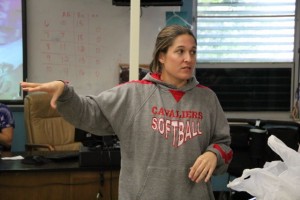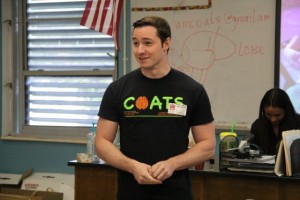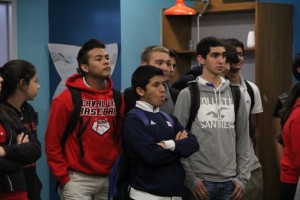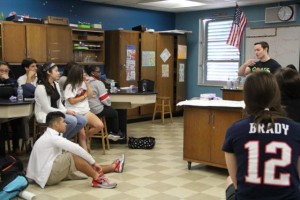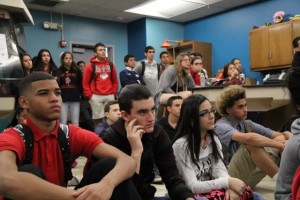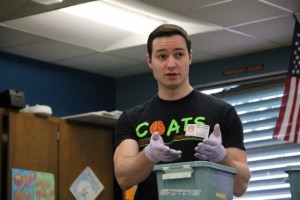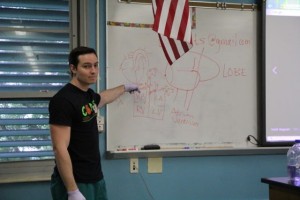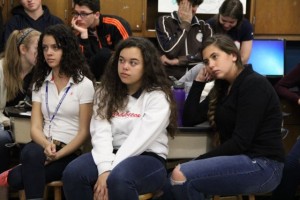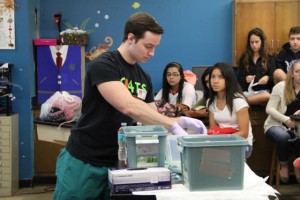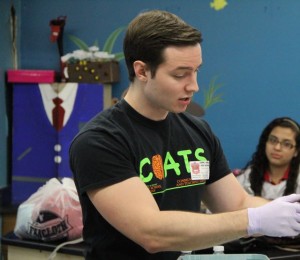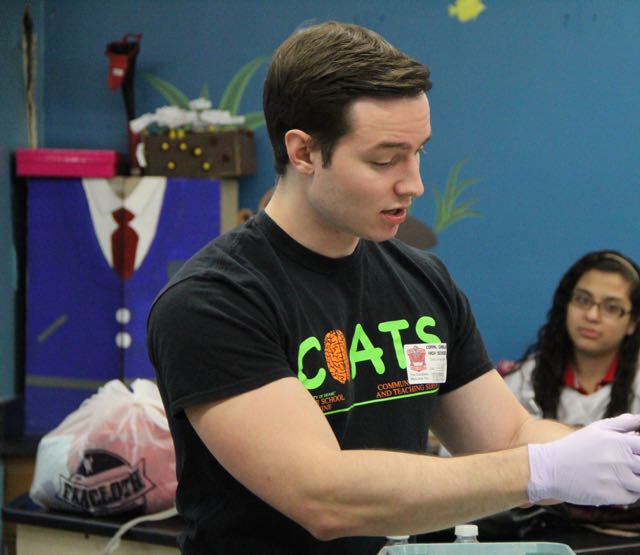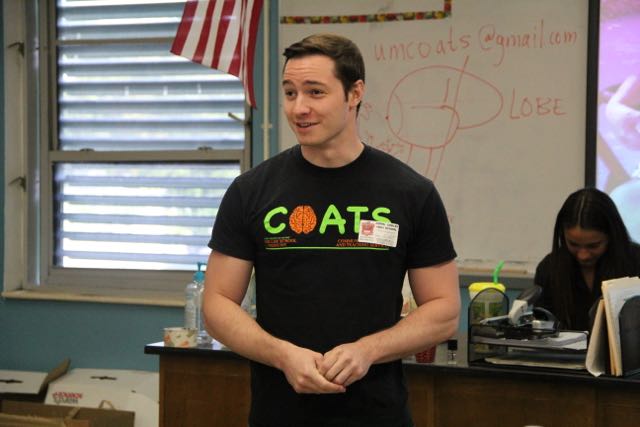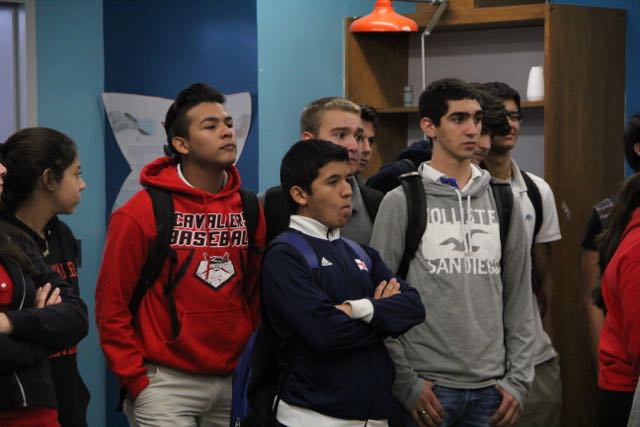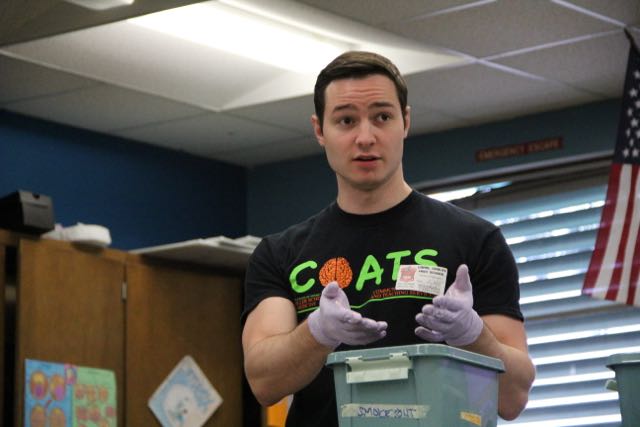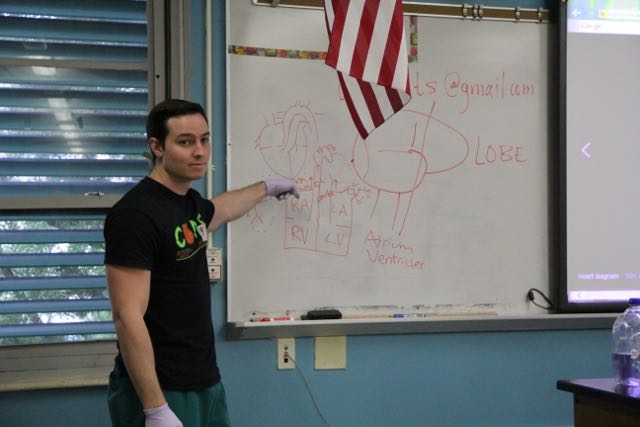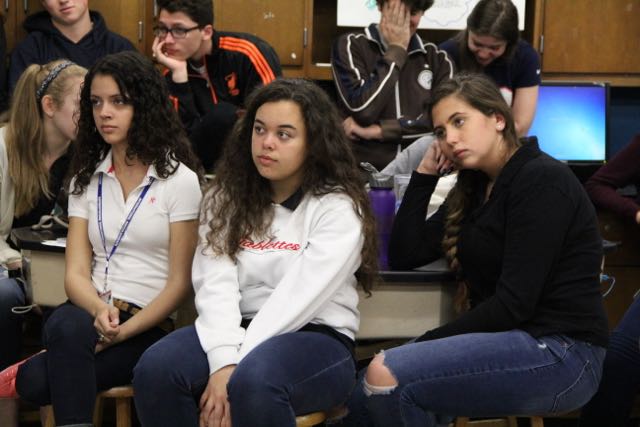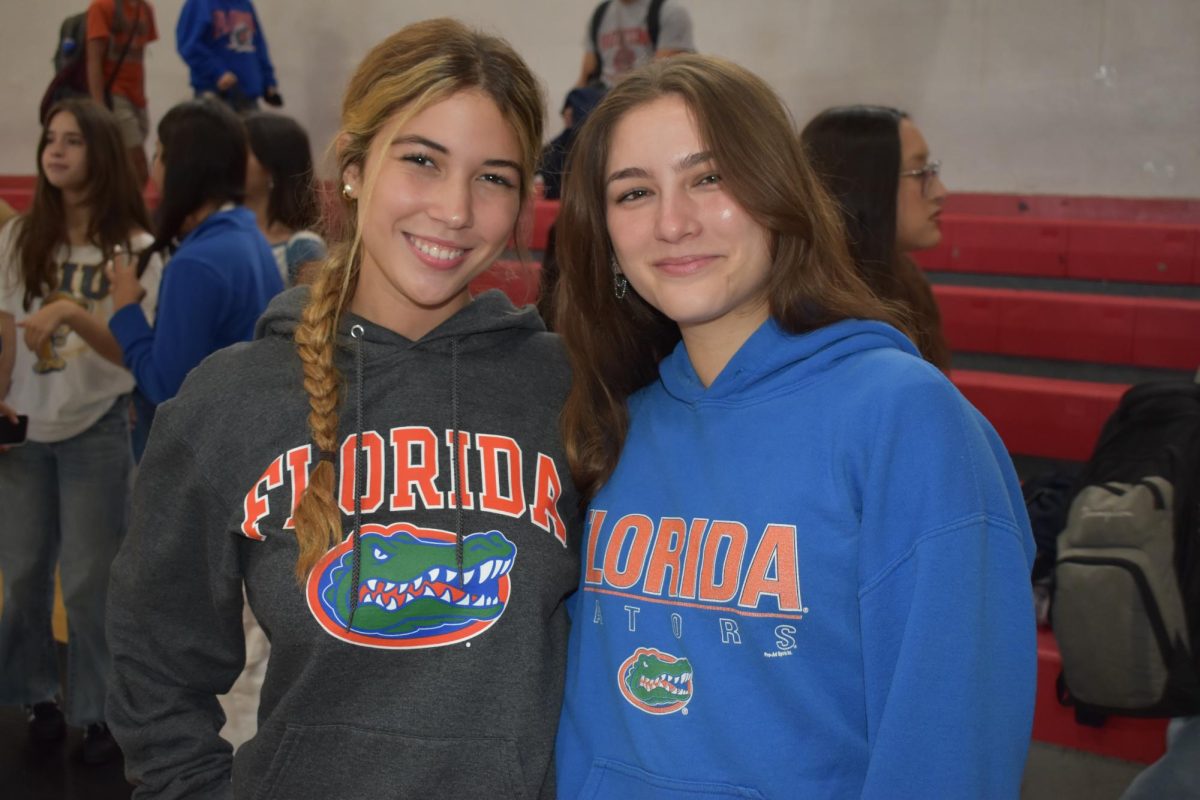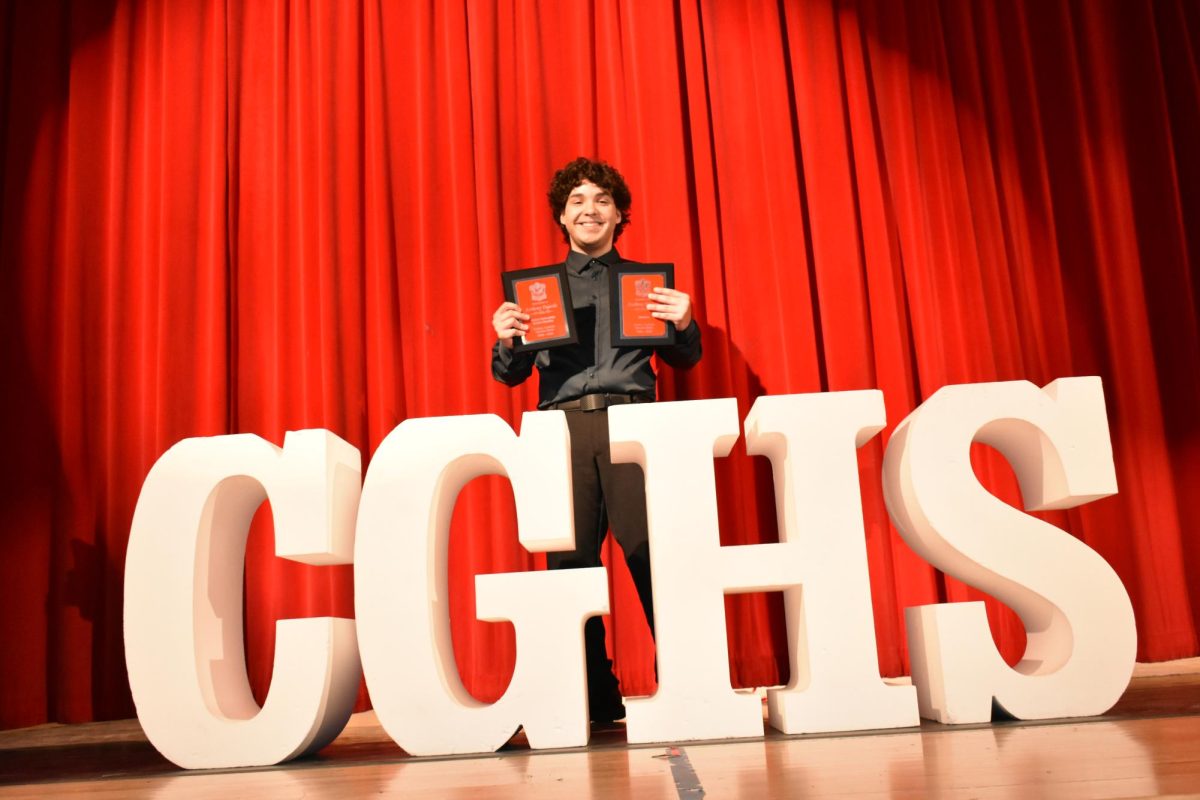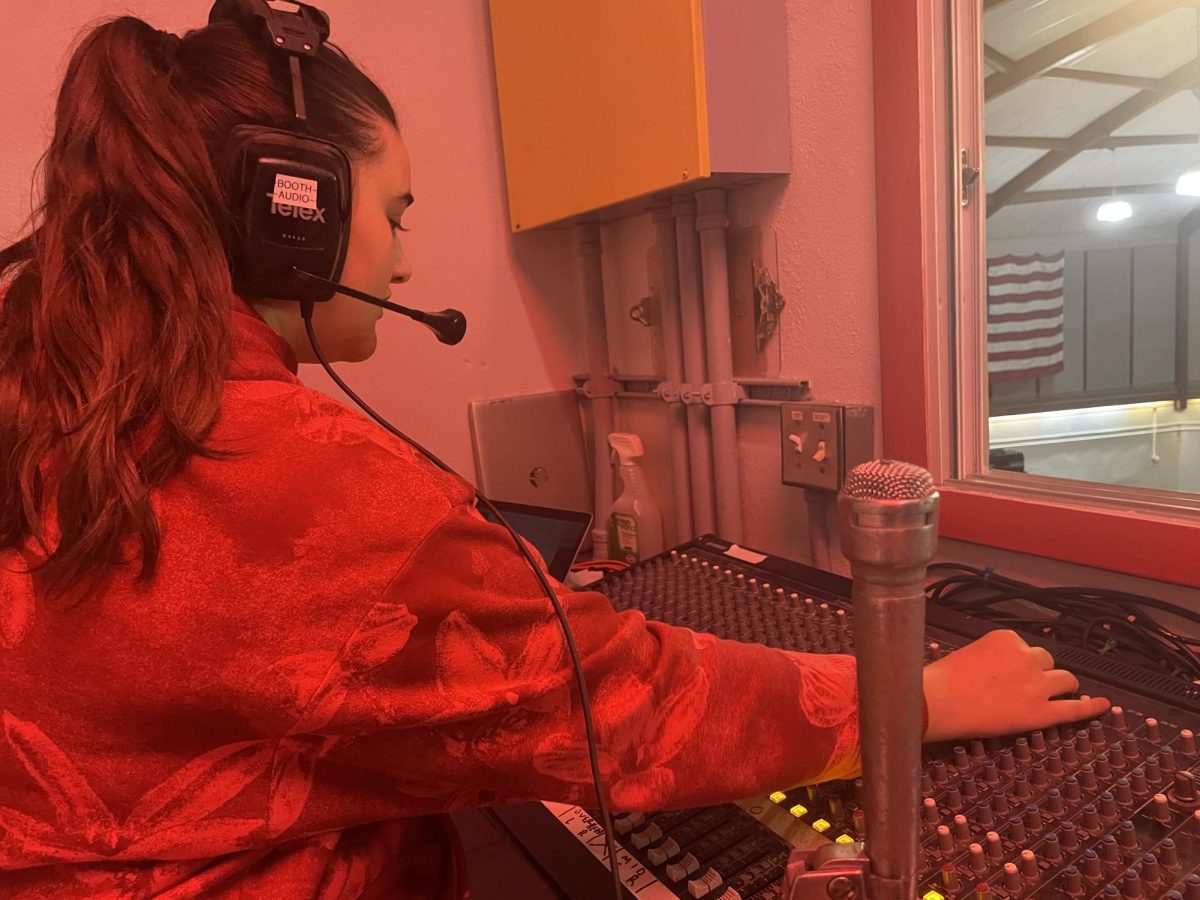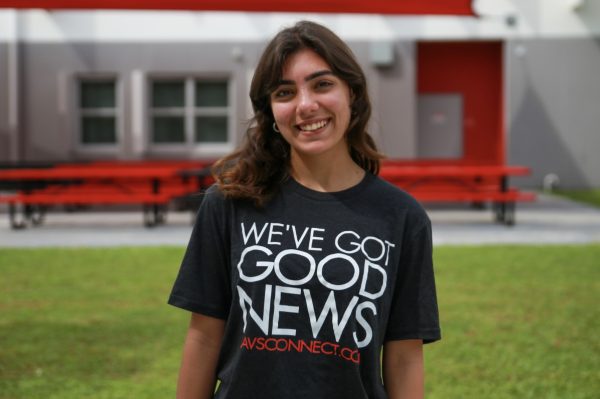Caution:Once in a Lifetime Experience Awaits
Feb 12, 2015
On Feb. 2 and 3, University of Miami (UM) students came to pay a special visit to Gables for their 5th year in a row. Mr.Molina is the organizer of Gables’s Community Outreach and Teaching Services (COATS) club. The club visits every year to not only inform fellow students about the basics of medicine and expose real organs, but also to spark up an interest in the STEM field.
COATS started through Gables by a graduate Cavalier that became president of the club at UM and decided to contact her past science teacher, Molina. Extremely grateful, Molina agreed to schedule a visit from the college students on campus. The yearly visits became a great way for students to become enthusiastic about science – especially because the speakers held real organs while presenting.
Audio PlayerBecause of their success and benefits, COATS now comes yearly and presents to various class; this year, the presentation was held in Ms.De La Vega’s AP Biology class, and Ms. Fraga’s IB Chemistry class and Ms.Mayer’s Anatomy class joined in. COATS could not have been more beneficial to the students. The group offers our Cavaliers more in-depth knowledge about the medical field in general as well as basic facts about organs and how to maintain one’s health. Interestingly enough, the presentations also cover drug abuse and the detrimental effects of certain drugs to the organs. Students are able to see the effect of drugs on a real organ and visually compare the damaged organ to a healthy one.
“I was fortunate enough to know in high school that I wanted to study medicine, and this is just a way to expose others to the medical field. I enjoy volunteering with [COATS] to teach others and answer questions not only about organs, but also about college,” first-year UM student Andrea Rabassa said.
All organs brought in had been donated to science and are now vital instruments when it comes to teaching, but although their downers are no longer alive, respect for them is still deserved. COATS does not allow any photography or videography to be taken of the organs, simply because they belong to another individual; thus, respect is given. The fact is that students should not take selfies with the organs; it is extremely disrespectful.
“Yes, we should respect the organs, but these were donated for research and photography is part of the research process; we should be allowed to take pictures, ” junior Krissia Escobar said.
Career opportunities in STEM have been increasing over the years, and the problem with youth now seems to be that United States students do not have enough individuals with a strong STEM basis to go into them. These presentations, although short and sweet, can certainly help individuals learn at least one or two new facts. Hopefully, these facts later inspire students to further investigate the medical field.
COATS has benefitted the student body profoundly every year for the past five years, and it will continue to benefit our Cavaliers. Good traditions are those that stick; this is one of them.


